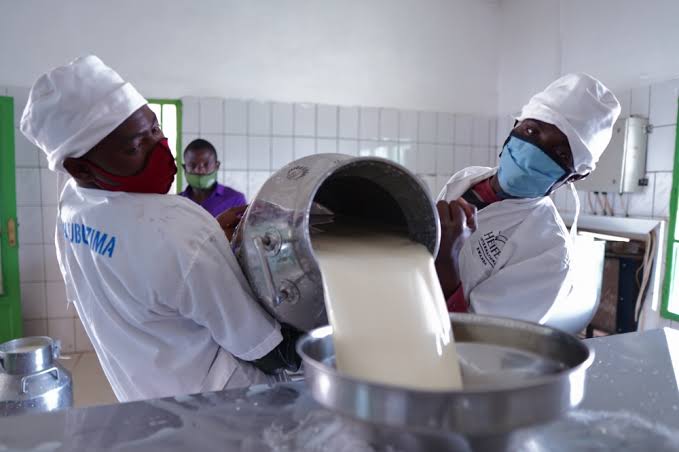Uganda is widening its search for a market for its milk to northern Africa after incessant trade wars with its East African neighbours.
This week, President Yoweri Museveni toured Algeria where he agreed with host Abdelmadjid Tebboune on a deal to sell farm produce including dairy products and to strengthen co-operation in other areas of agriculture like animal health.
But this came just after Kenya shut down, then reopened the door on Ugandan powdered milk, citing decisions to protect local producers.
According to a statement released by State House in Uganda, President Museveni, while in Algiers, said that Algeria working together with the East African Community could create a strong cluster for economic development.
Ugandan Agriculture minister Frank Tumwebaze said the move will provide Ugandan farmers and milk processors with an alternative market.
“They will buy our powdered milk, coffee and bananas. We shall in turn buy from them animal health drugs and others. To our farmers, worry not anymore about market for our dairy. Only condition is to perfect our value chain standards, which have so far been approved,” Tumwebaze said.
This week, Kenya lifted a ban it imposed a few weeks ago on Ugandan powdered milk.
“I am delighted to inform the dairy industry in Uganda that the ban on milk products has been suspended. I have also had fruitful discussions with Mr Abdi Dubat, permanent secretary in Kenya’s Ministry of East African Community on bilateral issues,” said Rebecca Kadaga, Uganda’s first deputy prime minister and minister for the East African Community Affairs.
According to a letter seen by The EastAfrican, dated March 14, and signed by Kenya’s Principal Secretary in the Ministry of Agriculture and Livestock, Harry Kimtai, the ban had been suspended following bilateral discussions.
“Take not that, importation of products under the East African Community protocol refers to goods being imported from outside the East African Community while goods traded within EAC are referred to as transfers. The stoppage issued through Kenya Dairy Board letter ref KDB/MD/SED/1VOL.5/58 dated March 6 is hereby suspended to allow for the dairy industry (imports and exports) to regulations 2021 to apply accordingly,” the letter reads.
In a March 6 notice to milk importers, the Kenya Dairy Board had said it was moving to protect local farmers from external products, as their output is expected to increase soon.
“In anticipation of the long rains, the government has stopped the importation of milk powders to cushion the industry from surplus production and low prices,” said Margaret Kibogy, KDB managing director.
She added that the board was not going to issue new import permits until further notice.
The letter, although not specific on imports banned, was interpreted to have targeted milk from Uganda.
The announcement had dampened hopes raised when President William Ruto took power and announced that cheaper milk imports from Uganda would be allowed and that Kenyan milk would be processed for the international market.
Kenya has been the leading buyer of Uganda’s milk, with imports valued at $138.2 million in 2020, although trade relations between the two countries have faced several barriers, prompting Uganda to search for new markets for its milk as many of its dairy processors were hard it by the loss of the Kenyan market.
Tanzania had also put a tax on Ugandan milk in 2017.
Currently, the Democratic Republic of Congo, South Sudan, Zambia, and Algeria have proved new virgin markets for the milk as well as the United Arab Emirates, Syria, Japan, Oman, USA, Nepal and Bangladesh, according to the Ugandan Dairy Development Authority.
Leveraging on the Africa Free Continental Trade Area (AfCFTA), some producers have expanded to South Sudan, Ethiopia and Malawi.
In 2018, Ugandan milk exports totalled $131 million and 74 percent of that ($96 million) was exported to Kenya, according to data from United Nations Comtrade.
Processed milk accounts for more than 35 percent of Uganda’s marketed milk, according to DDA.
Read more in The Citizen














